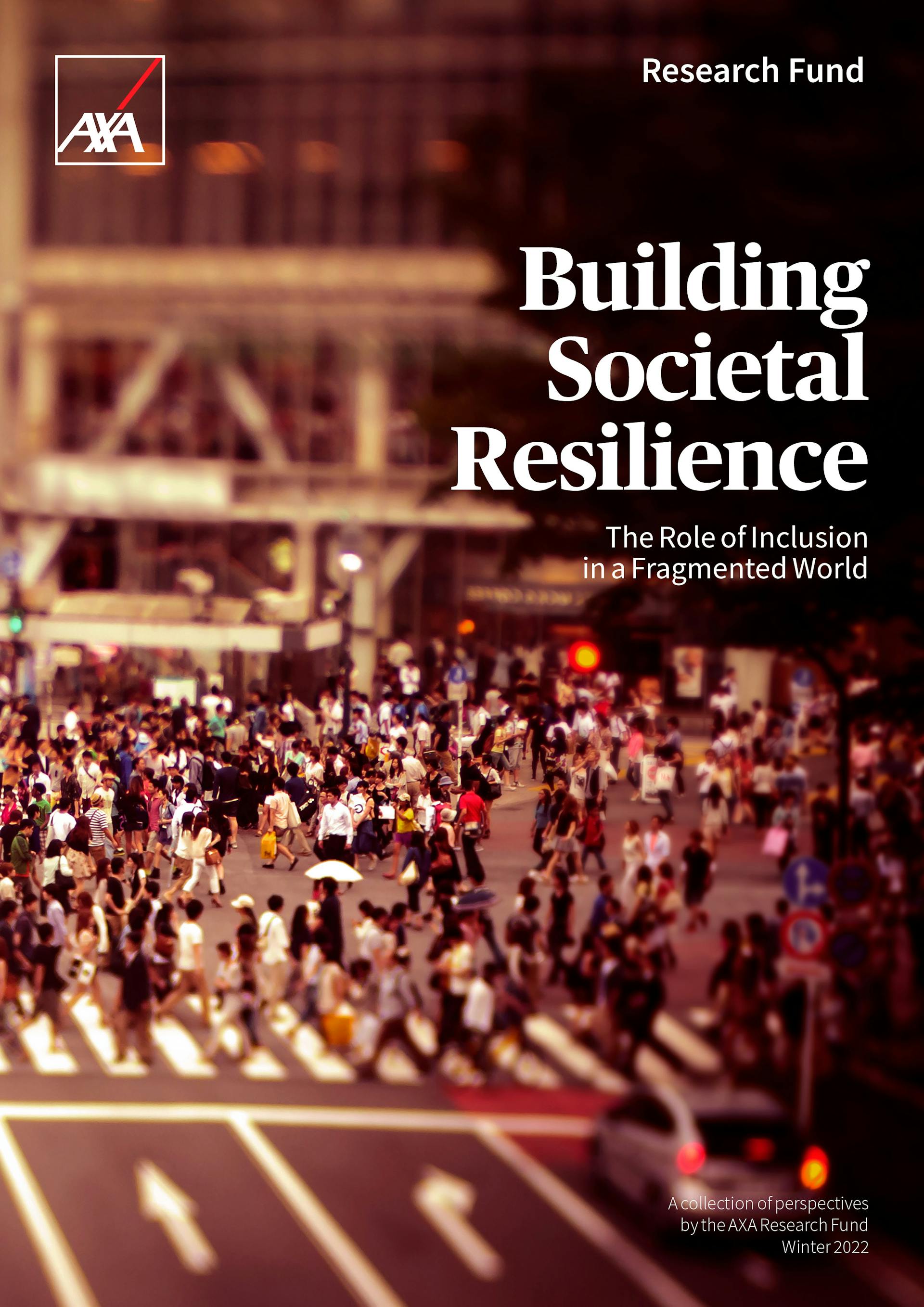

Gilles MoëcChief Economist of AXA Group and AXA Investment Managers Head of Research
November 22, 2022
Investment, Inequality, and Societal Resilience
Rising inequality, which today affects more than 70% of the world’s population, is a major threat to societal resilience. Broad economic trends, as well as successive crises, have contributed to the widening gap between the wealthiest and poorest in our societies. While the financial sector is often seen as a primary driver of rising inequality, financial markets, and institutions, as well as investors, have an important role to play in supporting inclusive growth.
4 minutes
Building Societal Resilience: The Role of Inclusion in a Fragmented World
This article is part of an AXA Research Fund's publication
FULL PUBLICATIONThe rebound in inequality pre-dates the Great Financial Crisis of 2008 — divergence in the income growth of the top and bottom deciles of income distribution was already evident across the OECD during the previous decade, with some notable exceptions such as France — but the slowdown in trend growth which followed the crisis made the divergence more acute. More recently, the rise in energy and food prices triggered by the war in Ukraine is fueling an inflation wave which, as often, penalizes those at the bottom of the income distribution. Spending on those two items — energy and food -absorbs more than half of the total income of the poorest 20% of the population in Europe.
Governments’ short-term capacity to mitigate income inequality was impaired by slow tax receipts and market pressure on more fragile debt trajectories. Moreover, some of the tools used to support economic growth over the last 15 years — although necessary to prevent a catastrophic rise in unemployment — often inadvertently benefited those at the top of the income distribution: central bank activism, in the form of direct purchases of securities, bolstered the price of financial assets.
While income inequality rose, other forms of inequality came into focus as part of societal change. Unequal opportunities across gender, sexual orientation, social and ethnic background rose to the fore. Government action can address those as well — for instance by implementing legislation mandating equal pay - but more subtle forms of inequality are not always easily addressed by regulation, while long delays can be found between the emergence of a societal concern and policy action.
Responsible investment, although no full substitute to legislation, can help. Fundamentally, a possible broad definition of inequality is a distribution of economic and social outcomes disconnected from individual talent and work but instead driven by identity. This is the source of massive economic waste. Firms which disregard these issues will ultimately lose in productivity and flexibility. It is a central tenet of responsible investment that is not only morally right; it is also financially good.

Gilles Moëc
Chief Economist of AXA Group and AXA Investment Managers Head of Research
Some of the tools used to support economic growth over the last 15 years — although necessary to prevent a catastrophic rise in unemployment — often inadvertently benefited those at the top of the income distribution.
An asset manager combines two approaches. A defensive
one consists in trying to avoid being exposed to companies which will struggle over the lifetime of the investment. A poor social record can be an effective forward-looking indicator. In concrete terms, and that’s what we do at Investment Managers (AXA IM) — this can entail general exclusion policies against companies faring too low on social scores. In the offensive
approach, asset managers try to select the investments which will strive, and faring high on social scores is an input into such selection. In practice we have developed a series of financial products which target strong performers on some social scores.

Gilles Moëc
Chief Economist of AXA Group and AXA Investment Managers Head of Research
Beyond responsible investment, financial businesses can improve general social resilience. Deep, liquid, well-functioning — and well-regulated — financial markets are key attributes of efficient economies which can lift those who are struggling.
How can this contribute to collective welfare? By skewing portfolio allocation towards the best performers, their cost of capital will fall, thus strengthening their capacity to grow. Of course, a certain critical mass
is needed to trigger a visible change in relative funding costs. This is why some form of collective action is needed — for instance, AXA IM has been a pioneer in developing in France a collective push by asset managers to demand a stronger representation of women in corporate boards. We don’t want to paint too rosy a picture. Pursuing social goals which cannot be easily expressed in widely available, harmonized data can raise questions on the outcomes. Environmentally responsible investment has gradually converged towards a metric widely recognized in the industry — carbon intensity. Dealing with inequality cannot resort on a single set of data. Regulators can help though to set a level-playing field. Much like the green
taxonomy implemented in the EU provides a helpful map to investors and issuers, the social taxonomy will in the future drive investment in this field, although the recent delays in the completion of this project says a lot about the complexity of the issue.
Still, the financial industry can at least benefit from the work of the United Nations’ towards defining Sustainable Development Goals (SDGs). Beyond SDG 10 which directly targets inequality, several of them pertain to the broad definition which we have sketched out above, e.g. SDG 5 (gender equality) or SDG 8, which promotes inclusive growth. Data providers are busy analyzing corporations through this prism. Although not perfect, they will contribute to a development in social finance
which over time will reach the critical mass
which we mentioned.
Beyond responsible investment, financial businesses can improve general social resilience. Deep, liquid, well-functioning — and well-regulated — financial markets are key attributes of efficient economies which can lift those who are struggling. Unregulated finance can of course magnify crises and undermine welfare states, but investors every day assess the long-term fiscal sustainability of governments, hence their future capacity to continue supporting social action against the temptation of runaway deficits
. This is a more discrete, sometimes unpopular, but ultimately vital role of financial markets.




